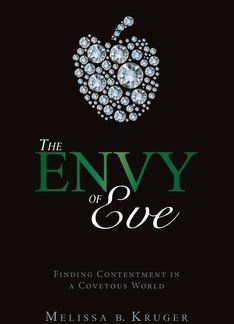Melissa Kruger
Christian Focus
256, £8.99
ISBN: 978-1-84550-775-6
Star Rating: 4
As someone who rarely finds a 20th/21st century book that he prefers to the writings of the Puritans, I found this to be a very interesting read. It combines an element of the forensic analysis of the practical heart-level christian life found in the writings of the later Puritans with the anecodotal style often found in christian writing today. The anecdotal aspect makes the book very readable as well as providing copious illustrations of the essential issue.
The issue being dissected and illustrated is that of covetousness. This is very relevant to Christians living in a materially successful, but spiritually empty, modern world.
The author is female and so some of the anecdotes and the discussion of relationships reflect this. However, men would benefit just as much as women from each example.
Questions for personal reflection and group discussion are included at the end of each chapter. These help the reader to apply the content of the chapter to themselves and provide a basis for potential adaption to a series of group studies.
The theological stance is reformed, with God’s sovereignty over all aspects of life central to the approach adopted, while man is still held to be fully responsible.
The root of coveting is diagnosed to be unbelief: “Coveting does not result because we don’t have something. We covert because we fail to believe something”. That something is the sovereignty and goodness of God’s character. Kruger discusses the close connection between covetousness and idolatry, quoting John Piper (from “Desiring God”) saying “…Covetousness is a heart divided between two gods. So Paul calls it idolatry.” She goes on to say “A covetous heart reveals that our affections have turned from the one true God to the vain and false idols that we worship. Essentially, our unbelief begets our covetousness, and our covetousness gives birth to idolatry.” How the resulting negative pattern of seeing, coveting, taking and hiding can be replaced with a positive pattern of seeking God, desiring rightly, giving generously and confessing freely is discussed in general terms. It is then applied to a variety of specific aspects of life, such as relationships, circumstances and gifts, along with material possessions.
In summary, clear Biblical forensic analysis, reminiscent of the later Puritans, is applied in an approachable way for 21st century Christians. This reviewer would like to see more such books produced by the 21st century church.









